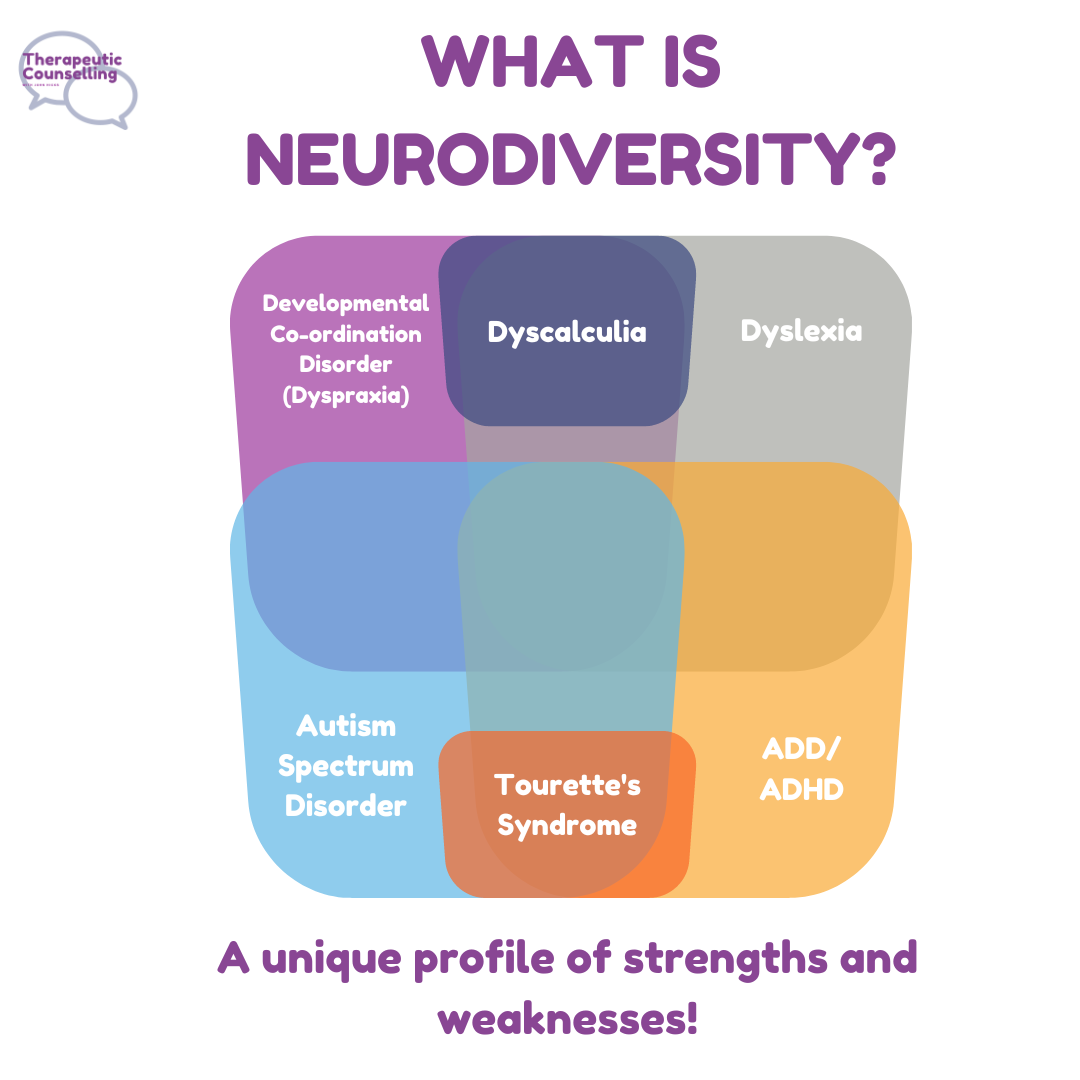Neurodiversity at University: The impact of integrative counselling.
“It is all about reducing the size of those mountains!”
Introduction
FACT - Poor self-esteem, anxiety, frustration and embarrassment are a common experience of children with dyslexia, according to a recent British Dyslexia Association survey of 1300 parents of dyslexic children.
Dyslexia and the other neurodiverse conditions including ADD/ADHD, Autism Spectrum Disorder occur independently of intellect and as a result can lead to individuals who have not received effective intervention, struggling with their mental wellbeing, social capacity as well as with challenges with processing speed, organisation and time management.
What is neurodiversity? A unique profile of strengths and weaknesses.
If mental wellbeing is affected, then the challenges of being neurodiverse are exacerbated. Dealing with the difficulties of life whilst feeling overly anxious or fearful is much harder than dealing with difficulties when one is confident in one’s own skin.
I personally do not see neurodiversity as a disability (although it is recognised as such according to the Equality Act 2010). I believe that it is a unique way of thinking and thinking uniquely may conflict with the requirements put upon an individual depending upon the context that they find themselves in. As a result, the mental wellbeing challenges can take effect at different stages of an individual’s life for different people.
In the past 11 years I have worked with individuals who have struggled with their neurodiversity within many different contexts such as Secondary Education, Further Education, Higher Education and within the workplace. Often things become really difficult when one’s strategies for coping become outdated due to a change of context or increased workloads.
In my more recent work with Cambridge University Colleges (over the past six years) as a coach and more recently as a counsellor, it has become evident to me that students that are referred to me often feel ‘caught out’ at university because they were able to get through Primary and Secondary education with relatively little difficulty. The switch to university life, the change of culture, workloads and expectations to always excel almost cancels out the successful coping strategies of the past and leaves some students feeling ‘floored’ by change. This triggers higher levels of anxiety and as a result motivation and productivity can be inhibited.
Students that I have worked with have benefited from at first being listened to and understood about what they are experiencing. Then the next stage is to explore how their neurodiversity informs their unique mix of strengths and weaknesses. With this foundation in place, the student is then in a better frame of mind to be able to develop new strategies for managing their weaknesses as well as enabling their strengths to shine within university life and beyond.
Integrative Counselling?
I consider myself to be an integrative counsellor; a counsellor that draws upon different disciplines in the service of his client. I am trained as a ‘Person Centred’ counsellor using the fundamental skills of Empathy, Unconditional Positive Regard and Congruence, but I am also a trained performance coach that uses skills that are taken from Neurolinguistic programming and Cognitive Behavioural Therapy.
Other counsellors might draw on other disciplines depending upon their training and skill set.
In short, all my clients are able to explore difficult thoughts and feelings in a safe and confidential space, in a process that is client led. As the process evolves I work with my clients to discover new strategies for managing weaknesses that are relevant to the context within which they find themselves in as well as enabling their strengths to shine. They get time to try out their strategies and learn about themselves through the counselling process thus unlocking their potential, their confidence as well as achieving the best outcomes with their courses.





